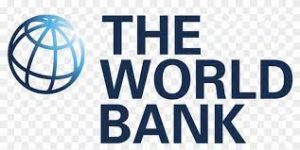THE World Bank has warned the federal government over the rising food inflation in the country saying that it could push additional six million Nigerians into poverty. The global lender in a publication titled, COVID-19 in Nigeria: Frontline Data and Pathways for Policy, said, “The rise in prices witnessed between June 2020 and June 2021 alone could push another 6 million Nigerians into poverty, with urban areas being disproportionately affected.”
This follows the report from the National Bureau of Statistics (NBS) early this week that annual food inflation rate rose for the 24th consecutive month to 20.75 per cent in October from 20.71 per cent in September as a result of further increases in the prices of basic food items.
In its Consumer Price Index, CPI and Inflation Report for October 2021, NBS noted that “This rise in the food index was caused by increases in prices of food products, coffee, tea and cocoa, milk, cheese and eggs, bread and cereals, vegetables and potatoes, yam and other tubers.” Consequently, food inflation rate had risen by 7.38 percentage points since May 2019 when it dropped to 13.37 per cent.
The World Bank added in the report, “The share of Nigerians living below the national poverty line could have increased from 40.1 percent to 42.8 per cent, due to the food price inflation witnessed between June 2020 and June 2021. This means about 5.6 million additional Nigerians would be living in poverty.
While food price inflation would decrease purchasing power and raise poverty across Nigeria, it appears that urban areas could be disproportionately affected.
In 2018/19, about 16 percent of poor Nigerians were urban dwellers.
Yet among those who would be newly impoverished by the increase in food prices between June 2020 and June 2021, around 27 per cent would be from urban areas. The World Bank traced the rising food prices to the effect of COVID-19.
According to the global body, while the first part of the COVID-19 crisis precipitated a global economic slowdown which caused a recession in Nigeria, the second crisis was characterized by surging inflation, putting further pressure on households’ purchasing power.
The bank stated, “In April 2021, the year-on-year inflation rate was the highest in four years, and food prices accounted for over 60 per cent of the total increase in inflation.
“Indeed, in 2020 and 2021, Nigeria witnessed its highest surge in food-price inflation in almost two decades. This inflationary pressure stems from both supply and demand factors, many of which are directly linked to the COVID-19 crisis.
“On the supply side, food production and market access may have been affected by the pandemic and by lockdown measures, compounding the effects of restrictive trade policies, including the closure of Nigeria’s land border in August 2019.
“On the demand side, firms and households expect prices to rise during economic shocks and thus incorporate these expectations into their investment and consumption decisions.”
The World Bank expressed concern that negative coping strategies could threaten welfare at the moment while having implications for the future.
It stated, “Food insecurity may have long-run consequences for human capital, as child stunting in Nigeria was widespread even before the pandemic, and malnutrition can weaken children’s capacity for learning.
Alongside other immediate priorities for Nigeria, such as rolling out vaccines and recouping learning losses, scaling up social protection – including using innovative techniques to reach the poor – remains crucial for alleviating the effects of the COVID-19 crisis in the short, medium, and long run.”
The bank added that lack of social protection exposed the citizens to large welfare losses, saying before the pandemic, less than 2 per cent of Nigerians lived in a household enrolled in the National Social Safety Net Project (NASSP) – and coverage of most other programs was even lower.
The World Bank called on the Nigerian authorities to, as a way of providing bedrock for recovery; curb the spread of COVID-19 by rolling out vaccines quickly and equitably. It also charged the government to put machinery in motion to recoup learning losses experienced during the first year of the pandemic, while expanding social protection to ease households’ welfare losses, curtail longer-term consequences for human capital and livelihoods, and enable fiscal reforms.


